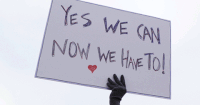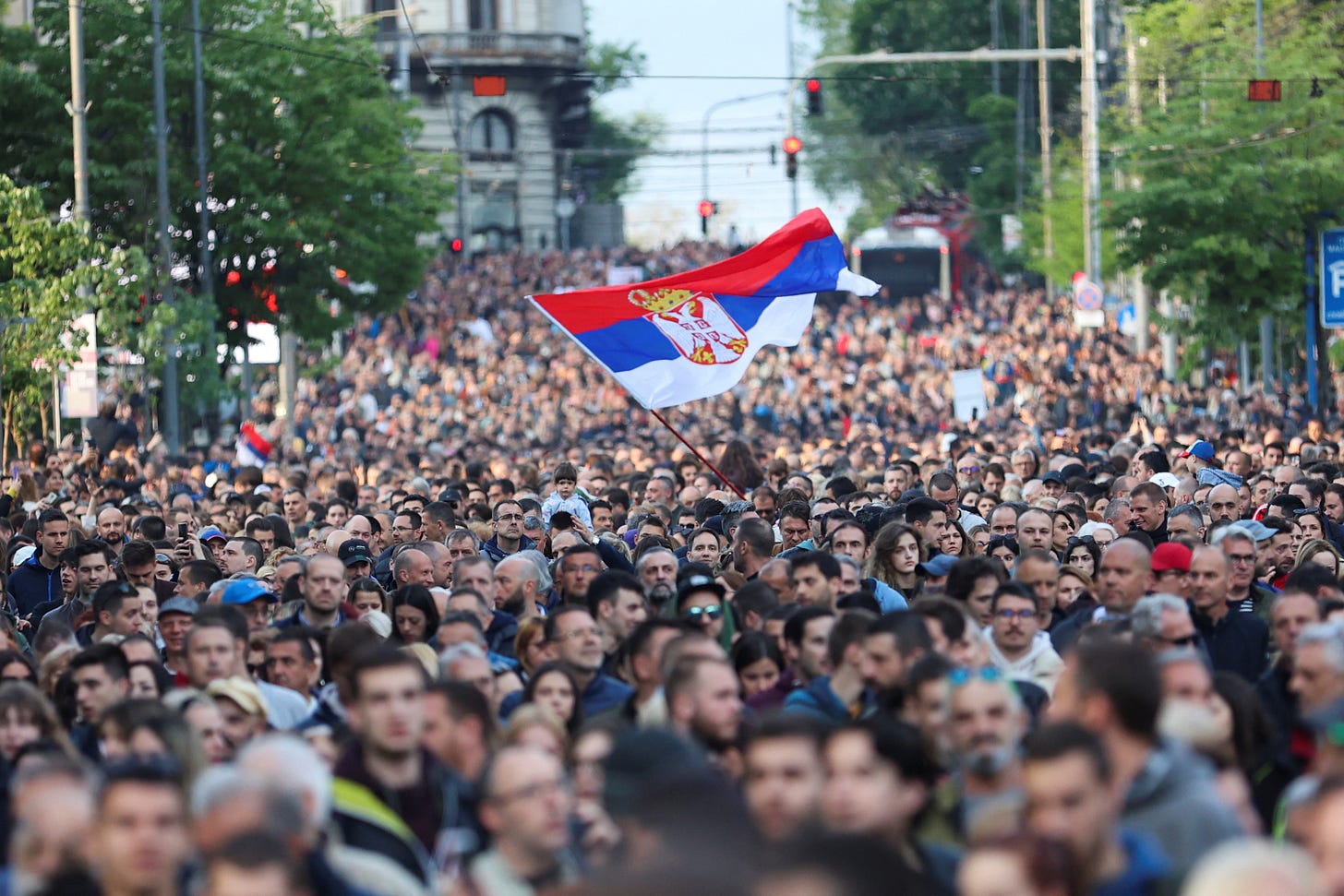🫶 Turkey's election
May 12, 2023
Happy Mother’s Day!
All eyes are on Turkey this weekend, as the country holds what is being hailed as the most consequential election of the year.
Will Recep Tayyip Erdoğan, the country’s longest serving leader, remain at the helm for another five years, extending his already 20 year rule into a quarter of a century? Or can the opposition, six parties united under the Nation Alliance coalition, end Erdoğan’s reign? Polls show that, maybe it can.
There is a lot at stake on Sunday, for Turks, for Europe, for Syria, for Russia, for NATO, for the United States. I wrote about Turkish foreign policy with or without Erdoğan for CNN this week. Spoiler: I doubt that much will change.
Still, it couldn’t be more important to vote out Erdoğan. In two decades he has further weakened Turkey — economically, socially, internationally, democratically. Turkey was never a perfect democracy. Even before Erdoğan took the helm in 2003, the country’s rulers struggled to do the simplest of things: govern and represent. Today, Erdoğan has turned his back on both. Though he went into politics with the hope of representing the average Turk and improving lives, he has created a personalist autocracy focused only on political survival.
Sunday’s election will come down to a number of constituencies that have been key to Erdoğan’s success: women and the young. Fariba Nawa writes about the Muslim feminists who once saw Erdoğan as their emancipator but now question his commitment to their well being. Erdoğan fought for women in Turkey to be able to wear a headscarf in government and in public universities. They won that right in 2013. Since then he has rolled back a number of protections, including withdrawing Turkey from the Istanbul Convention, a treaty that prevents and combats violence against women.
The other wildcard in this election is the young. Selin Girit has a piece for the BCC on the importance of their vote. There are millions of first time voters in Turkey. None of them know a Turkey without Erdoğan. They grew up in a Turkey where economic growth and technological advancement was a given. Imagine their confusion and disappointment with a Turkey not only rife with inflation, slow growth, and narrowing opportunities, but one in which free expression is limited.
As someone who works with young people, I’m struck by their ability to believe in change and their ability to affect it. Barack Obama understood that and energized that demographic over social media and the message, “Yes, we can.” In 2008, Obama won 66 percent of the youth vote (people under 30).
Facing the toughest election of his career, Erdoğan has opted for fear over hope — a message of “only I can.” His campaign has doubled down on accusing the opposition for supporting terrorists and being pro-LGBT, betting that homophobia will keep conservative voters in his camp. It’s a departure from his previous efforts in which he clearly laid out his policies and it was the opposition that stood on nothing more than an anti-Erdoğan platform.
Today, that opposition has united with a positive message about the need for Turks to come together — to rebuild the economy, relations with neighbors, and governing institutions. Their message this time is clear and summed up with this: 🫶
— Elmira
Elsewhere in the World.....
On our radar...
Turkish elections
Here’s Elmira’s piece about Turkish foreign policy with or without Erdoğan. (CNN)
Polls show that Recep Tayyip Erdoğan is in a tight race and is vulnerable to defeat. Will he accept that? Maybe, say Gönül Tol and Ali Yaycıoğlu. “Turkey’s elections are popular and fraud is not,” making it hard for Erdoğan to cheat or cling to power. (Foreign Policy)
Nearly 60,000 people died in the February earthquakes that struck southeastern Turkey. Over a million have been left homeless. Suzy Hansen traveled to the region and looked at the aftermath of the tragedy - and how it will impact Erdoğan’s prospects this coming Sunday. (New Yorker)
If the opposition wins, what should the EU do? İlke Toygür offers some thoughts. (Institute of Turkish Studies)
Do good guys always finish last? Maybe not, as it seems like Kemal Kılıçdaroğlu might be giving Turkey’s current president, Erdoğan, a run for his money. Seven Selvin Korkmaz explains how Erdoğan’s normal tactics might not work this time around. (Middle East Institute)
What effect, if any, will Turkey’s elections have on Syria? A great one, say Emily Milliken and Giorgio Cafiero, breaking down the consequences of different outcomes for Ankara-Damascus relations. (Responsible Statecraft)
US-Mexico border
Title 42, the Trump era immigration policy that called for the expulsion of asylum seekers, ended this week. What happens now? Eileen Sullivan takes a look. (NYT)
As Title 42 ends, the US and Mexican presidents held a phone call to discuss what comes next. Macarena Vidal Liy and Isabella González with more. (El País)
When it comes to asylum applicants, the US continues to operate on the false assumption that psychological torment and bodily anguish deter asylum applicants and migration, argues Belén Fernández. (Al Jazeera)
US
Graciela Mochkofsky profiles Cuban American Artist Edel Rodriguez who reflects on threats to democracy in America in his new exhibition “Apocalypso.” It draws parallels between Castro’s Cuba and Trump’s America. 👀 (New Yorker)
Debate over the US debt ceiling highlights the need for housing — a basic need — to be recognized as a fundamental human right. Maria Foscarinis thinks that ensuring access to adequate housing is essential for promoting social and economic mobility, reducing poverty, and addressing racial and economic inequalities. (The Hill)
Africa
Even before the latest outbreak of violence in Sudan, the country had been experiencing food shortages. With the onset of new fighting, international aid efforts to provide relief have been suspended. Omina Saed on how Sudan’s diaspora community has stepped in to fill the void. (New Lines Magazine)
The current situation in Sudan is a result of years of a revolutionary movement. How resilient is it? Very say Mahder Serekberhan and Horace Campbell who don’t hold back on the role of the upper class in exacerbating tensions. (Africa is a Country)
The Nigerian Court of Appeal has scheduled a hearing for two separate challenges against the results of the country's presidential election held in 2022. The challenges argue that the election was unconstitutional and include allegations of vote-buying and ballot stuffing. Anietie Ewang has more. (HRW)
Asia
Former Pakistani Prime Minister Imran Khan was arrested this week, on corruption charges. Nicole Narea explains what this means for the country, already mired in political crisis, as gears up for elections later this year. (Vox)
Thailand holds elections this Sunday. Many argue that, much like Turkey, democracy is on the line. Can the two opposition parties defeat the military backed incumbent? Vijitra Duangdee takes a look. (VOA)
Is Narendra Modi’s popularity in India starting to wane? Kavita Chowdhury is watching Karnatka State, which holds local elections next week. Modi’s BJP party is in a tight race with opposition party Congress. (The Diplomat)
What did Biden’s report on the Afghanistan withdrawal get wrong? A lot says Madiha Afzal. (Brookings)
The Americas
Watch: Following the assassination of the prime minister in July 2021, Haiti has descended into lawlessness. Thousands are eager to escape the country. Marcia Biggs brings us a sobering look at what’s happening on the ground. (PBS Newhour)
Chile held elections for Constitutional Council, the body tasked with rewriting the country’s constitution. The far right gained the most votes. 😳 What does that mean for reforming the Pinochet constitution? Antonieta de la Fuente takes a look. (El Pais)
Listen: Paraguay held elections on April 30. Santiago Peña was elected as president. Julieta Heduvan on what his victory means for the country and the region at large. (Americas Quarterly)
Conservative Santiago Peña won Paraguay’s election over the weekend by one of the biggest margins in the nation’s democratic history. Cordula Tibi Weber, Barbara Ganson, R. Andrew Nickson, and Brian Turner tell us what they think about the election. (The Dialogue)
Europe
Britain’s extravagant coronation ceremony last weekend is one of the most glaring symbol’s of the country’s inequality. Polly Toynbee tears apart the “phantasm of monarchy” that clouds Britain. (The Guardian)
Following two mass shootings in Serbia, tens of thousands took to the streets to protest gun violence. (Take note America).
In Italy, 7 out of 10 doctors refuse to perform abortions. Following the US Supreme Court decision overturning Roe v. Wade, pro-choice gynecologists fear that abortion rights in the country may altogether disappear. Isobel Cockerell on the rise of Prime Minister Giorgia Meloni’s “family values” platform. (Coda Story)
How effective are Western sanctions against Russia? With an increase in exports from the EU to Armenia, Kazakhstan, and Kyrgyzstan, Beata Javorcik wonders. 🤔(Project Syndicate)
In April, Germany closed its last three nuclear plants. Hannah Ritchie points out that while that might prevent a disaster, it doesn’t help climate change. (Washington Post)
Middle East
In the Syrian province Idlib, frustration is growing over the inadequate flow of humanitarian aid following February's earthquake. The failure of the international community to send assistance is keeping Syrians in a loop of helplessness, says Arwa Damon. (Atlantic Council)
The Arab League has readmitted Syria into the grouping, making the Western calls for justice more irrelevant, says Judy Dempsey. (Carnegie Europe)
In March, thousands of military reservists joined country-wide protests against Prime Minister Netanyahu’s plan to overhaul Israel’s judiciary. Can a desire to defend democracy justify a refusal to follow orders? Risa Brooks and Avishay Ben Sasson-Gordis discuss. (Foreign Affairs)
Science and Climate Change
Believe it or not, it’s been over three years since the pandemic hit. Many have been living with the debilitating effects of long Covid. Liz Highleyman investigates why there is no treatment for the condition. (Slate)
Now that Covid is no longer classified as a “pandemic” - except, it’s not, says Laurie Garrett. (Foreign Policy)
The World Health Organization announced last week that Covid is no longer a public health emergency. Mariana Lenharo explains what this means and what’s coming next. (Nature)
How is migration related to climate change? Amanda Barba explains. (International Policy Digest)
Technology
International attention is definitely shifting to the sky (remember those spy balloons?) 🎈But forget balloons say Catherine Amirfar, Ina Popover, Christel Tham, and Nicole Marton the future is in satellites. (Just Security)
Links We Loved....
All the single ladies (and people), gather and take a peak at this article!
Here are some delicious recipes that you should make for your mom this Mother’s Day.
Listen to an eclectic assortment of music handpicked by New York Dolls founder and musicologist David Johansen on his radio show Mansion of Fun.
Two plays you should see in NYC: A Doll’s House and Prima Facie. Jessica Chastain knocks it out of the park as Nora in the Ibsen classic. Jodie Comer’s performance as a woman who's been assaulted is powerful.
Are you ready to be in a 1813 party? Check out the Bridgerton Experience in NYC!
Job Opportunities
Apply to be the CEO of Good Citizen.
In NYC, Google is hiring for a Manager, Crisis Communications.
The Guardian is searching for a Data Editor.
In DC, MoveOn has a spot open for a Press Secretary.
Editorial Team
Elmira Bayrasli - Editor-in-Chief
Editors:
Rasmiia Abasova
Samantha Felman
Anouk Jouffret
Pin-Shan Lai
Catherine Lovizio
Emily Smith





